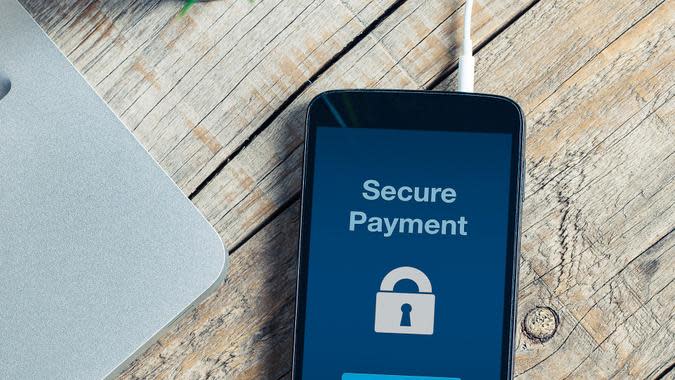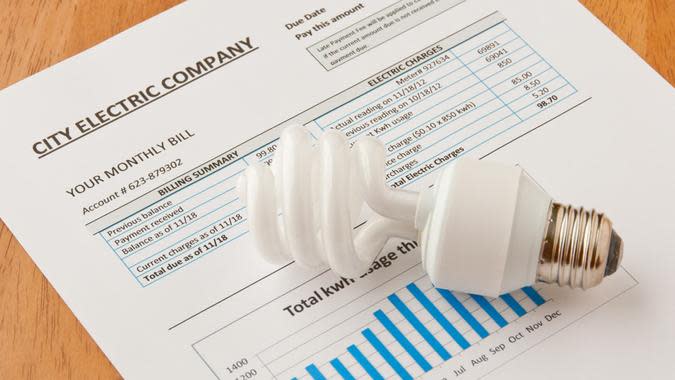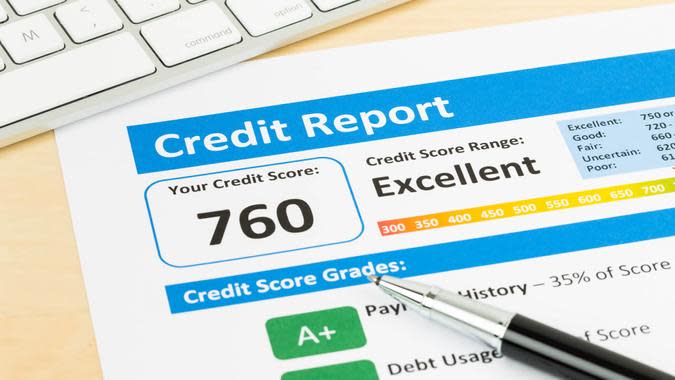7 Hidden Ways To Help You Boost Your Credit Score

Your credit score holds the key to much you want to accomplish in life, such as obtaining a mortgage or buying a safer car for your family. Improving your credit score starts with understanding just how all of the pieces of a credit score work together and continues with building a plan to boost the number.
Check Out: Check Your $2 Bills -- They Could Be Worth Upwards of $4,500
Related: 3 Signs You're Serious About Raising Your Credit Score
There are five components of your credit score: payment history, outstanding debt, credit history length, diverse types of credit and pursuit of new credit, said Marge Hannum, the chief risk officer with Mercury Financial.
"Paying bills on time, having a low percentage of debt, a long credit history, and a low amount of credit inquiries and new lines of credit opened in the past year, can all help build your credit score," she said.
Inside some of those key ways to build good credit lie some smaller tidbits of advice that can get you on your way to a better credit score. Read on for hidden ways to help you see your credit score go up.

1. Set Up Automatic Payments
It's easy to forget to pay a bill before the due date. So eliminate the forgetfulness factor by putting your bills on autopay.
Zelle Scams on Facebook Marketplace: How To Recognize and Avoid Them
Why Is My Cash App Payment Pending? 5 Reasons and Solutions
"Use technology to pay every bill on time, every time," said Bobbi Rebell, a personal finance expert at debt payoff app Tally. "We all know that the number one thing to help your credit score is to pay your bills on time, but life happens and things don't always go as planned. It doesn't help that many Americans feel overwhelmed by their credit card balances. If you have credit card debt, take advantage of automation tools to help streamline your financial life."

2. Pay Before Your Statement Closing Date
It's essential to make your credit card payment before the due date, but your credit score will benefit if you pay your bill before you actually receive it, said Jeanne Kelly, the founder of The Kelly Group Coaching. In fact, she advises cardholders to pay off the bill -- or as much of it as they can -- before it's even generated.
"Your credit card statement balance date -- not your due date," she said. "Often people will wait for the credit card statement and pay the account to zero but that balance never reflects on the credit report because it is paid after the statement is sent out. The statement balance is what gets reported to the credit reporting agencies. If you learn the date your statement gets sent out -- pay the balance down 72 hours before to report a lower balance on your credit reports."
Take Our Poll: Who Has Given You the Best Money Advice You Have Ever Received?

3. Pay Twice a Month
If making your payment before the statement closing date doesn't fit your budget, make two payments in the month your payment is due. That's a suggestion from Lee Grant, the CEO at Wrangu, a technology solutions company.
"Let's say you have a $1,000 credit limit on your card. You use it for everything since it's a rewards card. In fact, you've reached your monthly limit. You get your statement, you owe $1,000, and you pay it off," he said. "However, depending on when your credit card business reports your statement balance, you may appear to have a $1,000 limit and a $1,000 amount each month. That's a credit utilization rate of 100%."
"Breaking up your credit card payments can help lessen the situation. Charge everything to obtain the incentives, but make sure to pay off your balance at least twice a month to keep your balance low. Furthermore, if you make a major purchase on your card and have the funds available, pay it off right away."

4. Ask For a Credit Limit Increase
As we know, credit scores are based, in part, on the percentage of available credit you are utilizing at the moment. If you have willpower and don't run wild with your credit, ask for more if it.
"One of my favorite ways to boost my credit score that isn't well-known is to simply ask my credit card issuer to have my credit limit increased," said Caleb Reed, the founder of TheDollarBudget. "While this can seem contradictory to building your credit score, having your credit limit increased will lower your credit utilization rate, assuming you manage your credit responsibly and keep your balance low."

5. Keep Your Older Cards Active
You might have an old credit card in your wallet that you never use. Your primary card has better rewards and a lower interest rate, so why bother using that old one?
"For any accounts that you are keeping open to maintain their account history, make a charge every six months or so -- I usually recommend charging your groceries -- wait for the balance to reflect on your statement and then pay off the balance in full to avoid paying interest," said Phillip Godinez, a financial coach and founder of Reach Your Goals. "This will keep your less preferred cards reflected as open and active and help satisfy the on-time payment history component to credit scores."
Make Money With AI and Chat GPT: How To Earn $1,000 a Month

6. Get Your Utility Bills Added to Your Credit Report
Utility bills traditionally haven't been part of credit reports unless the account is delinquent and falls into collection. Now, the credit bureau Experian has rolled out Experian Boost, which gives users the option of allowing Experian to look at their bank accounts to verify things such as utilities, cable and phone bills are paid on time and added to their credit file. Even Netflix counts. Experian Boost is free.

7. Review Your Credit Report
Your credit score could be impacted by inaccuracies in your credit report. Finding them and reporting them could send your credit score back up.
"A friend of mine was wondering why his credit score was so low even though he paid everything on time and had no debt," said Max Marvelous, a certified credit counselor and money coach who runs Max My Money. "When my friend pulled his credit report, he found a mortgage to a home he did not own. Upon investigation, my friend found that someone had the same first and last name as him and a Social Security number that was only one digit different.
"Succinctly put, get your credit report for free and read it thoroughly. If there is something wrong, dispute it directly with the specific credit bureau. There is a section on all three bureaus' websites to dispute inaccuracies."
More From GOBankingRates
This article originally appeared on GOBankingRates.com: 7 Hidden Ways To Help You Boost Your Credit Score
